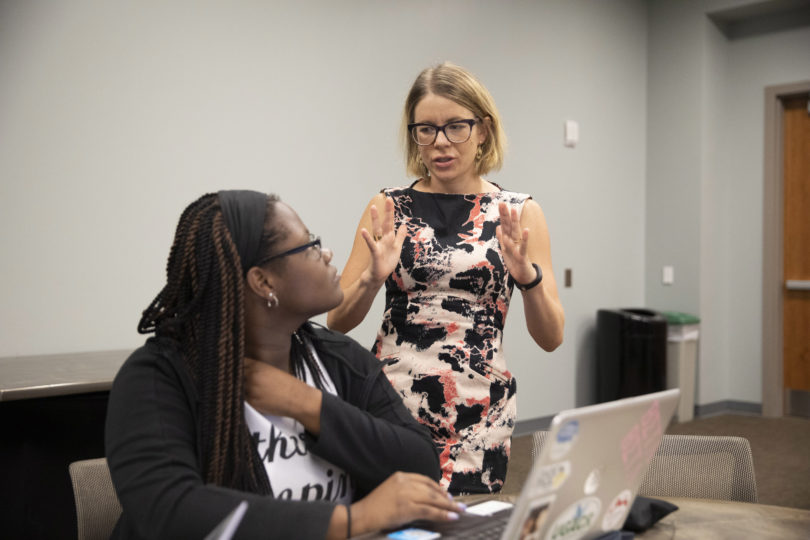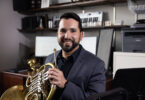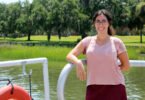Cassia Roth, an assistant professor of history and Latin American and Caribbean studies, helps students learn that the craft of history provides research, writing and analytic skills that prove valuable beyond the university.
Where did you earn degrees and what are your current responsibilities at UGA?
I received my Bachelor of Arts degree with a double major in Latin American studies and Spanish and a minor in gender and women’s studies from Bowdoin College in Brunswick, Maine. I received my Master of Arts and Ph.D. in history from the University of California, Los Angeles with a concentration in gender studies.
Currently, I am assistant professor of history and Latin American and Caribbean Studies, and I teach courses for both. I am also an affiliated faculty member of the Institute for Women’s Studies.
When did you come to UGA and what brought you here?
I’m somewhat new to UGA, arriving in August 2018. I was (and still am) excited to work with colleagues in the history department who research and teach the history of slavery in the Atlantic world. I have taught at a variety of different types of institutions, and I like teaching at large, public research universities. The students at UGA have been great.
What are your favorite courses and why?
I’ve only taught for one full year at UGA, but I really enjoyed my graduate “Gender Colloquium” in the history department. Every week, students read a recent book on gender and/or women’s history, and most weeks the author of the book Skyped into the class so students could ask direct questions about methods/argument/how to be a historian. My students were engaged and prepared, and I heard (second-hand) the best quote from a student, who mentioned in the teaching assistants’ office that they wanted to “liquify [the book we had just read] and inject it directly into their veins.” Can you ask for more than that?
What are some highlights of your career at UGA?
Although my time here has been short, I think my participation in the Liverpool Exchange Program through the Franklin College of Arts and Sciences was a highlight. I spent a week at the University of Liverpool and my colleague there, Dr. Christienna Fryar, spent a week here. Now, we are now working on a larger project about the history of slavery, emancipation, and the meaning(s) of freedom in the Atlantic world, which will result in a symposium at UGA in April 2020, a special issue of a journal, and hopefully some larger grants and fellowships. This exchange also dovetails with the important research the UGA history department is doing on the history of slavery at UGA. Our website highlights and showcases some of our work.
How do you describe the scope and impact of your research or scholarship to people outside of your field?
My work looks at the intersection of medicine and law in women’s reproductive lives. My forthcoming book, “A Miscarriage of Justice: Women’s Reproductive Lives and the Law in Early Twentieth-Century Brazil” (Stanford University Press, 2020), examines the parallel and interconnected processes of the criminalization of abortion and the medicalization of childbirth in Rio de Janeiro. My new research project, titled “Birthing Abolition: Enslaved Women’s Reproduction and the Gradual End of Slavery in the Lusophone [Portuguese-Speaking] World,” looks at how enslaved women’s bodies were ground zero for abolitionist legislation in eighteenth- and nineteenth-century Portugal and Brazil. My research is empirically based, and I always, whenever possible, center women’s embodied experiences of top-down processes—for instance, the passage of new legislation or the discovery of new medical techniques.
My research on gender and medicine in the Lusophone world thus demonstrates how state policy toward women’s health was formed within specific legal and medical contexts. For example, abortion policy — rather than being a linear progression from a “repressive” past towards a more enlightened future — has gone through waves of criminalization and decriminalization. As such, my research can help elucidate how we must address the continued (re)criminalization of abortion across the hemisphere in relation to each country’s specific legal and medical historical trajectory. In tracing the origins of current-day policy, my research unveils the entrenched historical trends that underpin contemporary debates on gender, reproduction and the state.
So although much of what I write about occurred a century or more ago, I see the reverberations of this history every day. Take, for instance, the new anti-abortion law in Georgia. In my book, I explore how Brazilian officials criminalized women’s miscarriages (involuntary pregnancy losses) in the early 20th century. Today, it seems that our state (and others), as well as countries such as El Salvador, are doing exactly the same thing. Separating families at the border? Well, slaveholding societies (including Brazil and the United States) did that as a matter of everyday policy. I am not saying that we can simply compare these events — we need to understand issues within their correct historical context. However, exploring the historical antecedents to contemporary policies can help us craft ways to better respond to current-day injustices.
How does your research or scholarship inspire your teaching, and vice versa?
My teaching philosophy reflects my research on the lived experience of the gendered and racialized body in history, and my classes include primary source analysis with an emphasis on marginalized histories.
For example, I remember how a student came to my office hours to discuss a particular case in which a Brazilian enslaver was prosecuted for raping his female slave. The student had free written on the source in class, during which they realized that the owner was prosecuted not because he raped his slave but because he took her virginity. I had read this source numerous times, and I had never come to this realization. The student changed my own understanding of sexual honor and slavery in Brazil, showing how gendered notions of female honor crossed racial and legal boundaries. This has influenced how I approach my new project.
What do you hope students gain from their classroom experience with you?
Students in my classroom learn that history is less about learning specific events and more about how we craft historical narratives. They learn to “do” history by interrogating their own biases in relation to the past. Students learn that the craft of history provides research, writing and analytic skills that prove valuable beyond the university. Moreover, connecting historical discourses to the present day encourages civic participation beyond the walls of the classroom.
Describe your ideal student.
I want a student who changes my mind about something, a student who uses evidence and a well-crafted, logical argument to challenge my assumptions or position. When I come out of class thinking differently, then everyone has succeeded.
Favorite place to be/thing to do on campus is …
… swimming at the amazing pool at Ramsey … Olympic size … great hours … Or running in the Botanical Garden.
Beyond the UGA campus, I like to …
I like to swim and run (outside). I dance at DanceFX. I also sew and knit (often while watching TV—right now “What We Do in the Shadows” and “The Handmaid’s Tale”). My favorite activities are spending time with my sisters and mom and hanging out with my amazing dog, Fox. He’s an immigrant from Brazil, and he very much enjoys the Georgia heat. I also love being in Lisbon; it’s my spirit city.
Community/civic involvement includes …
I’m seeking ways to mitigate my impact on the climate, including reducing my consumption and reusing things (ultimately, I need to stop flying). I participate in composting through Let Us Compost, sustainable farming through Collective Harvest, and I offset my energy costs through Georgia Power’s solar program. I similarly participate in Climeworks, which removes carbon from the atmosphere and turns it into rock. I also donate to local abortion access funds.
Favorite book/movie (and why)?
I don’t have one favorite book, but the two books that have stuck with me over the past few years are Lily King’s “Euphoria” (a fictionalized account of Margaret Mead in Papua New Guinea) and Graham Greene’s “The Heart of the Matter” (a novel about an English bureaucrat in West Africa). Both had incredible endings that left me almost gasping for air. I read so much non-fiction for work that I only read fiction for pleasure. I look for a clear narrative arc with a strong ending, one that both surprises and perplexes me. Both books did just that.
My favorite movie, hands down, is “Magic Mike XXL.” I love how it centers the female gaze, which is subversive. Plus, it’s a lot of fun to watch.
The one UGA experience I will always remember will be …
When I was on the UGA New Faculty Tour (and at the Okeefenokee Swamp), I got to ask the question: “If a full-grown bear and a full-grown alligator got into a fight, who would win?” Our tour guide responded, “That’s a great question.” (Answer: most likely the alligator, but if on land, the bear has a good shot.)
Is there anything else you’d like to add?
My worldview has been shaped most saliently by the death of my husband, Clayton Fagner Alves Dias, who was murdered in Rio de Janeiro, Brazil in 2015. I mention that here for two reasons. One, I want to honor his important place in my life, and I always name him whenever I can, and two because I teach and research the history of violence in Brazil and the Lusophone world. So my personal experience deeply influences how I approach the past. I want my students to think about the people in the history I teach, because ethically we need to, because it makes us better historians and citizens, and because that is part of Clayton’s legacy.







